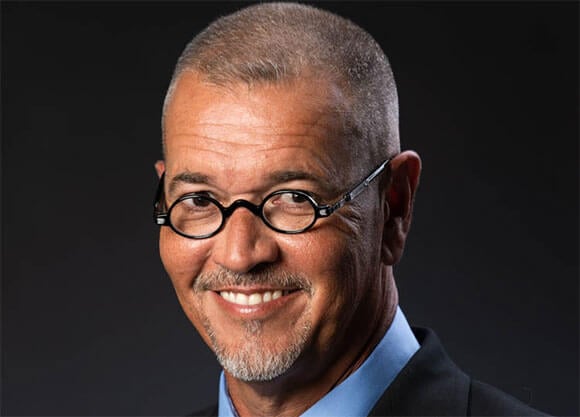
Becoming an agent of change, Quinnipiac’s post-professional doctorate program
June 05, 2023

June 05, 2023

Now, Ryan is bringing philosophies fostered at Quinnipiac to his role as a clinical instructor at the University of Central Arkansas (UCA) in their doctor of occupational therapy program, where he serves as the program and doctoral capstone coordinator.
Ryan has practiced occupational therapy in multiple practice areas with an interest in pediatric inpatient rehabilitation. He originally joined UCA in 2010 as a part-time adjunct instructor through 2018, when he set out to earn his doctoral degree. After a brief start with a Texas program which was not a good fit, he took the advice of some trusted mentors and began searching for a program in which he could become truly vested.
“I did a lot of research and happened across the Quinnipiac program," said Ryan. "When I started investigating it further and recognized the program was predicated on the idea of becoming an agent of change, I said, ‘This is the place for me.’”
In pivotal preliminary conversations with Barbara Nadeau, Quinnipiac's post-professional occupational therapy doctorate program director, Ryan shared his opinion that there is value in fostering positive changes in the profession and that there are benefits to higher education embracing change.
“I’ve been a leader in a lot of other arenas and I just know that change is always difficult for a lot of people," said Ryan. "You have to embrace it and have people who are willing to effect change." After having my conversations with Dr. Nadeau, I knew that Quinnipiac was the place for me because I knew everyone on that faculty had the same point of view and mentality. They encouraged outside-of-the-box thinking, scholarly debate and having an open mind. It was home right away.”
Prior to a career change to become an occupational therapist, Ryan held managerial positions in accounting and operations, information technology and sales and marketing. As an occupational therapy professional, in addition to his interest in pediatric neurorehabilitation, Ryan’s interests include assistive technology, administration and management and governmental relations related to occupational therapy practice.
Ryan’s interest in governmental relations has deep ties to his desire to provide advocacy to better inform the shaping of policies and laws impacting both his profession and its patients.
“So many things that are enacted by the government through policy or legislation have a direct impact on us as a profession, and more importantly, on how we deliver services to our clients or our patients," he said. "There is such a need for us, not just as academics, but as practitioners, to be on top of the changes that happen, sometimes on an annual basis; and for us to be knowledgeable about those and have a voice; and be a voice for both the profession and those who we serve."
For some of his doctoral classes at Quinnipiac, Ryan wrote about his efforts, through his role as a practitioner in Arkansas, to effect change legislatively.
“Medicaid is governed by the federal government, but there’s a lot of leeway at the state level and in the state of Arkansas in particular," he said. "There were some pretty radical changes that were proposed and I had an opportunity to have input in that. Despite our best efforts, there were some pretty substantial changes that were made. It highlighted the point to me that we need to be involved, we need to be leaders and not followers and recipients of whatever is handed to us."
Ryan said he’s grateful to have experienced Quinnipiac’s impactful educational approach and is now sharing much of its philosophy with his students.
“Given the premise that our profession’s changing, that our education’s changing, we need to have different perspectives on things," said Ryan. "I try to bring that mentality that was fostered in me at Quinnipiac to my own program. To be an agent of change, you have to have an open mind. That thread was woven throughout my education at Quinnipiac and it’s certainly something that I’ve tried to model and mirror in my own teaching career.”
While Ryan is back home in Arkansas cheering on the ACU Bears, he said he’ll always be a part of the Bobcat Nation, too.
“I jokingly tell people I was probably the only person in Arkansas glued to the TV and cheering for a hockey match not long ago when Quinnipiac won it,” said Ryan. “That’s the funny side of it, but the reality is that it was such a wonderful experience for me to be with the members of my cohort and to experience people with different cultural backgrounds and different experiences clinically. Having those perspectives of people in the profession who are faculty members really broadened my horizons so much.”
Quinnipiac Today is your source for what's happening throughout #BobcatNation. Sign up for our weekly email newsletter to be among the first to know about news, events and members of our Bobcat family who are making a positive difference in our world.
Sign Up Now